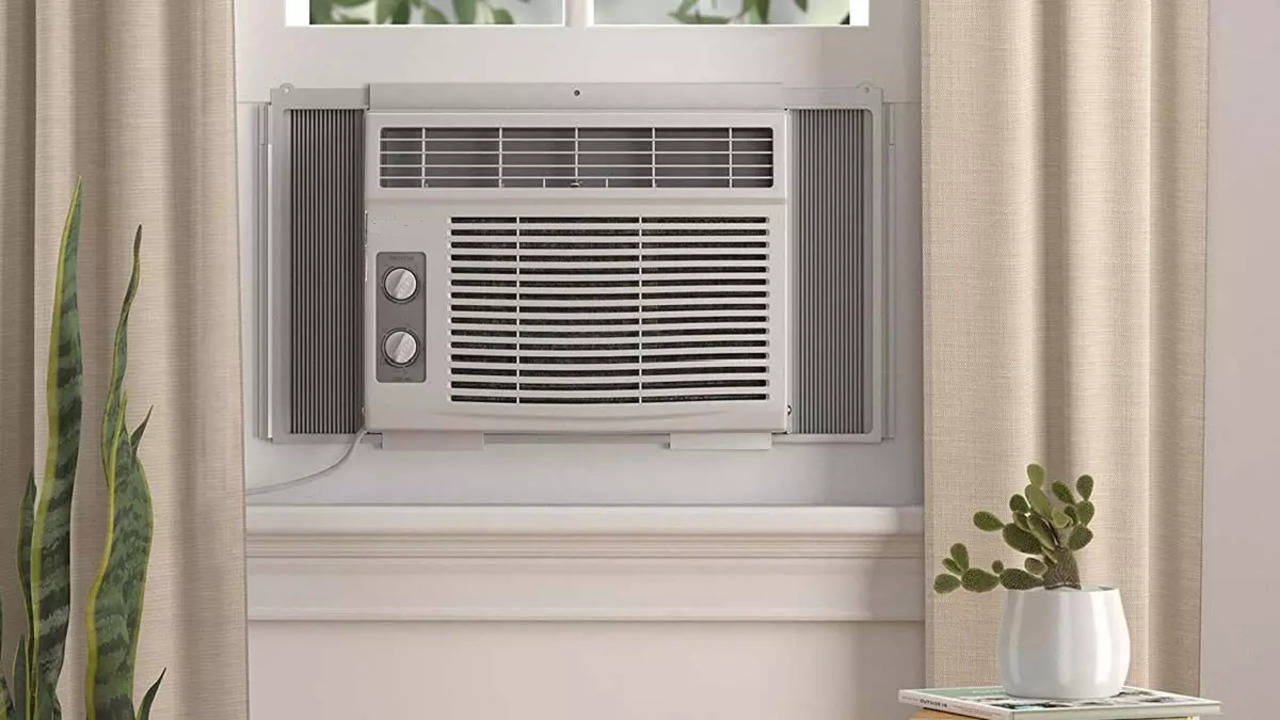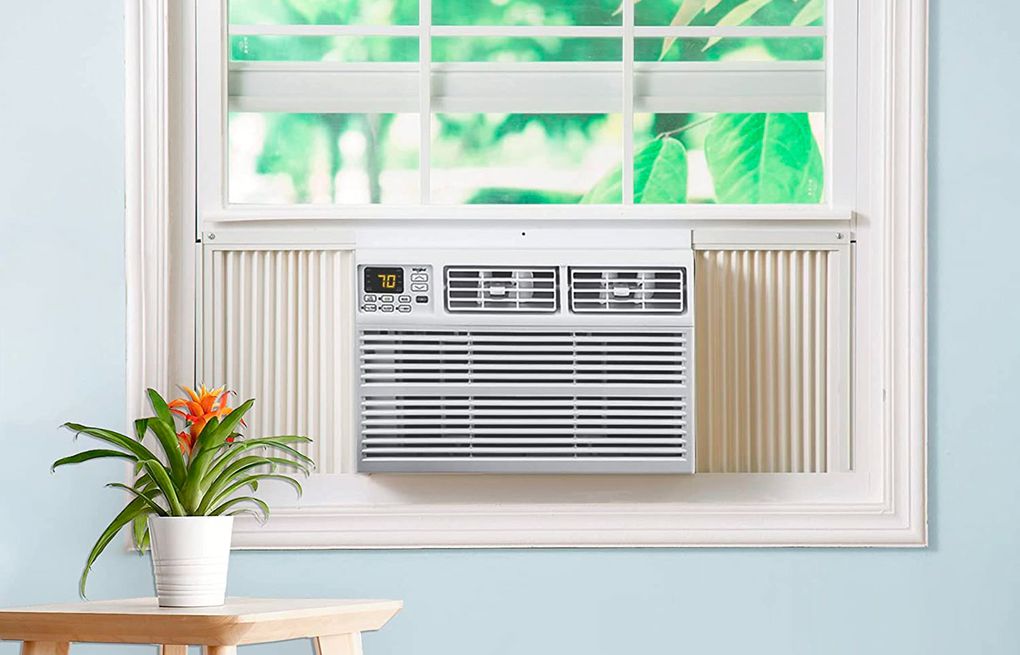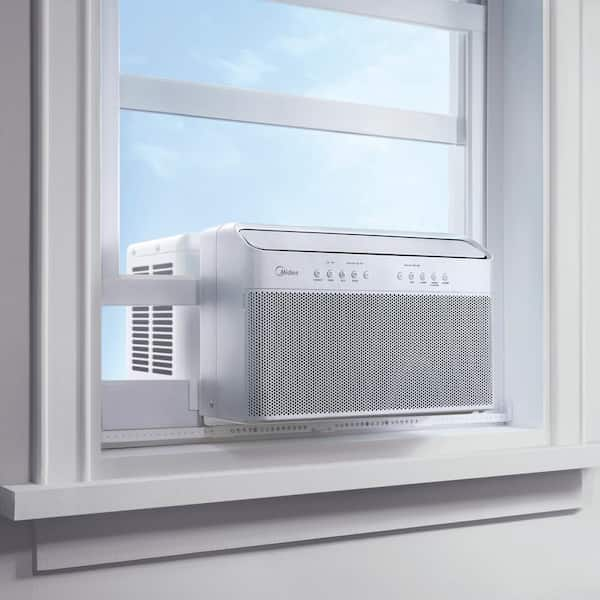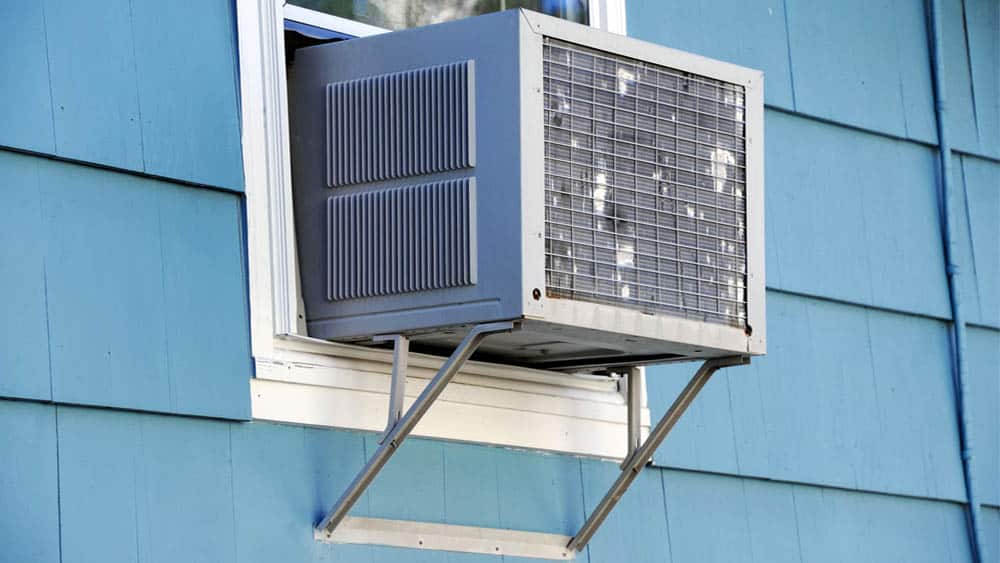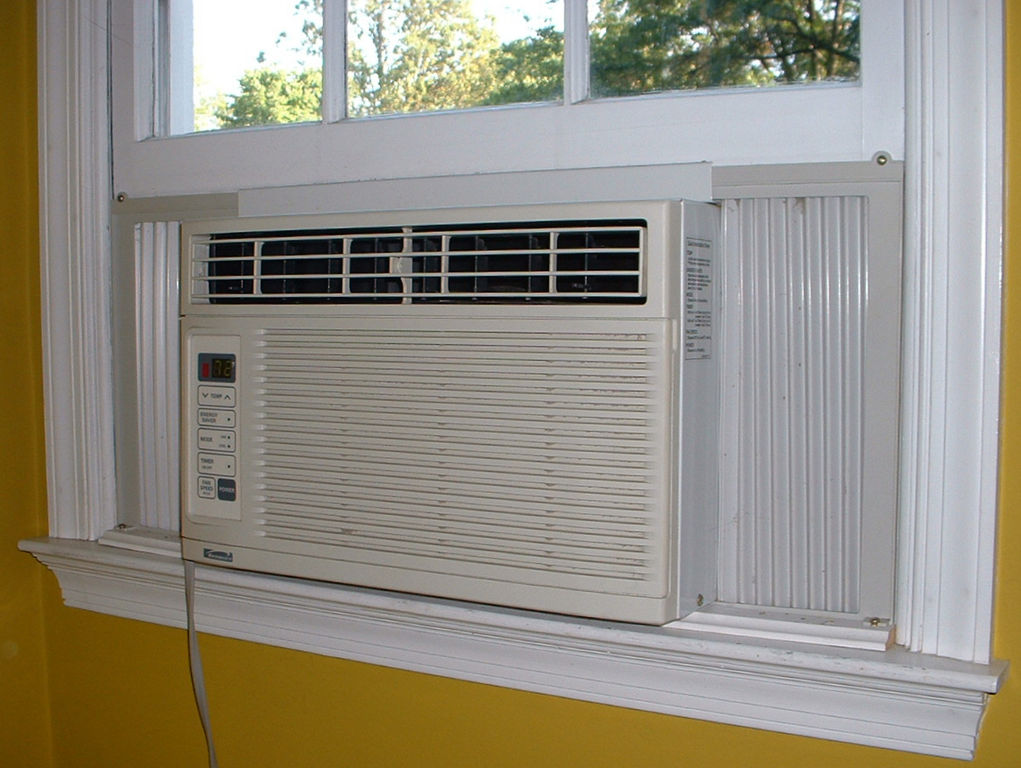Air conditioners are among the most often used electrical equipment in flats and households. Window air conditioners are required in the majority of households. In the summer, they pump cold air around the home to keep the temperature bearable. Of course, knowing how much power a window air conditioner unit consumes is critical to determining your energy use. So, how much power does a window AC use? Let us find out below.
What Are Window AC Units and How Do They Work?
A window air conditioning unit is a tiny form of air conditioner that is mounted on the frame of a window. It is regarded one of the simplest air conditioning systems, requiring simply an electrical outlet. Furthermore, window air conditioners are not large enough to chill a whole home. However, they can circulate cold air across a room, making them more energy efficient.
Window air conditioners are easily installed and portable, allowing you to transfer them from one room to another. Furthermore, as the temperature in a room rises, the thermostat in the air conditioner activates. The blower is turned on, as with typical air conditioners, and the air in the room is drawn into the device. The refrigerant coils circulate cool air across the space.
How Much Electricity Does a Window AC Use?
An air conditioner’s power consumption is typically determined by two factors:
- The cooling capacity of the air conditioner unit (measured in (BTU) British Thermal Unit/hour )
- The combined Energy Efficiency Ratio (EER)
To better grasp the aforementioned phrases, let’s look at them individually:
The air conditioner’s cooling capability is measured in BTUs per hour. BTUs are used to measure the heat content of energy sources such as furnaces, heat pumps, and air conditioners. It is the heat required to raise the temperature of one point of water by 1°F. A tiny window air conditioner is typically capable of producing less than 12,000 BTU/hour. Central air conditioners, on the other hand, are capable of producing at least 60,000 BTU/hour.
Image Source: timesofindia.com
An Energy Efficiency Ratio is the calculated ratio between the BTU/hour provided and the watts consumed. For instance, a small window air conditioner with a capacity of 12,000 BTU/hour using 1200 watts will have an EER of 10. While the EER unit is usable, it’s not always efficient. Furthermore, it only works within specific conditions (80°F for indoor and 95°F for outdoor temperatures).
So how many watts does a window use? While you can calculate the wattage using the formulations above, looking at the print information label on your window air conditioner for your specific model might be easier. However, large window air conditioners use at least 1440 watts, 900 watts for medium models, and 500 watts for smaller models. Of course, depending on the season, the state of your air ducts, and how many hours you keep your window air conditioner running, the watt hours could vary.
Electricity costs depend on electricity usage. Overall, a home window air conditioner can use 3,000 watts per hour. Of course, on the off-chance you leave your AC unit on an entire day, it will consume 72,000 watts of electricity. This could make your electricity costs soar. However, running the AC in fan mode will consume 750 watts in an hour, much less energy consumption.
How Much Does a Window Air Conditioner Cost to Run?
The average cost to run a window air conditioner that runs for 32 hours every month costs roughly $0.06-$0.88 per hour. If we assume that you run the air conditioner at least eight hours a day, the most affordable option is $14.40 per month. On the higher end, it could go upwards of $212 per month. Furthermore, it is easier to calculate the annual cost with these figures.
Image Source: theseattletimes.com
Of course, different-sized window units determine how much power consumption you will experience and how cost-effective they are. For a rough idea, here are different-sized window air conditioners and how much power consumption per kilowatt hour you should expect for each.
- For a small bedroom, a 5,000 BTU window unit should only use 450 watts
- A midsize window air conditioner 8,000 BTU AC should use fewer than 715 watts
- A big 14,000 BTU air conditioner should only use 1,250 watts
Factors That Impact Your Air Conditioner Energy Use Per Hour and Day
Several factors determine the air conditioner’s energy use. Some of them are:
1) Duration of Usage
How long you use your AC daily also determines how much energy it consumes. The more hours you have your window air conditioner on, the more energy usage you will experience. Additionally, to use your air conditioner more efficiently, you should ensure it’s running only when needed. Keep in mind that not all air conditioners need to rest, however, smaller AC window units do.
Image Source: homedepot.com
If you leave the AC running all the time, its life will be drastically reduced. Furthermore, the more you use your AC, the more electricity is used, and the less energy efficient it is. Reducing your consumption can help to offset the daily cost, keep your window air conditioner running at the same capacity, and maintain air quality.
2) The Outdoor Temperature
A window AC unit consumes more energy when the outdoor temperature is high. The same principle applies to a central air conditioner. Additionally, your portable window air conditioner depends on the outside temperature to remove heat. Remember, when the outside temperature is high, the air conditioner’s cooling capacity is low. Of course, when the temperature is low, the cooling capacity is higher.
Image Source: cielowigle.com
Sometimes, you will notice that the window air conditioner takes longer to cool a room during the day compared to at night. During the day, the AC unit is in direct sunlight, making it harder to cool a room.
3) The Efficiency of the AC
An air conditioner’s efficiency is determined by its EER, temperature settings, and the quality of the air ducts. A higher EER rating on a window AC unit indicates that it works better. Furthermore, the more effective a window AC unit is, the greater its cooling capability. A highly efficient Window AC unit will operate much quieter than other units, and its cooling output will be impressive for a long period.
Image Source: americanhomewater.com
Furthermore, using a quieter and more energy-efficient window AC unit will reduce your power use, perhaps saving you money in the long term. As with any portable air conditioner, as long as your window AC unit has well-made parts and is well-maintained, it will perform better than central air conditioning.
Frequently Asked Questions About How Much Electricity a Window AC Unit Uses
i) Does a window AC unit use much electricity?
No. A window AC unit is quite affordable, especially when compared to a central air conditioner. A window AC unit typically takes 500 to 1,440 watts to operate. On the other hand, a central air conditioner needs at least 3500 watts to function. Of course, if you need to chill a tiny room, a window AC is the ideal alternative.
ii) How much electricity does a window air conditioner use per month?
Your midsize AC will consume approximately 130 to 150 kilowatt-hours of electricity per month and draw approximately 900 watts per hour. Of course, these figures are the estimation when you run your window unit for at least 8 hours a day.
iii) Do ceiling fans consume less electricity than window units?
Yes, they do. Window ACs use between 600 and 1500 watts depending on the size. A ceiling fan consumes between 30 and 50 watts of electricity.
iv) How much power does window AC use per hour?
The power consumption of a window AC is mostly determined by its size. In general, a window AC consumes between 900 and 1440 watts per hour.
v) How much power does window AC use in 1 day?
A medium-sized AC consumes around 900 watts of power. Assuming the AC is turned on for 8 hours a day, it will consume approximately 15 kW of power. (One kilowatt (kW) equals 1,000 watts (W).
The Bottom Line
If you live in an area without air conditioning or only need to chill a small area of your house, a window AC unit may be the best option for you. It will keep your home cool throughout the hottest summer days without breaking the bank.


